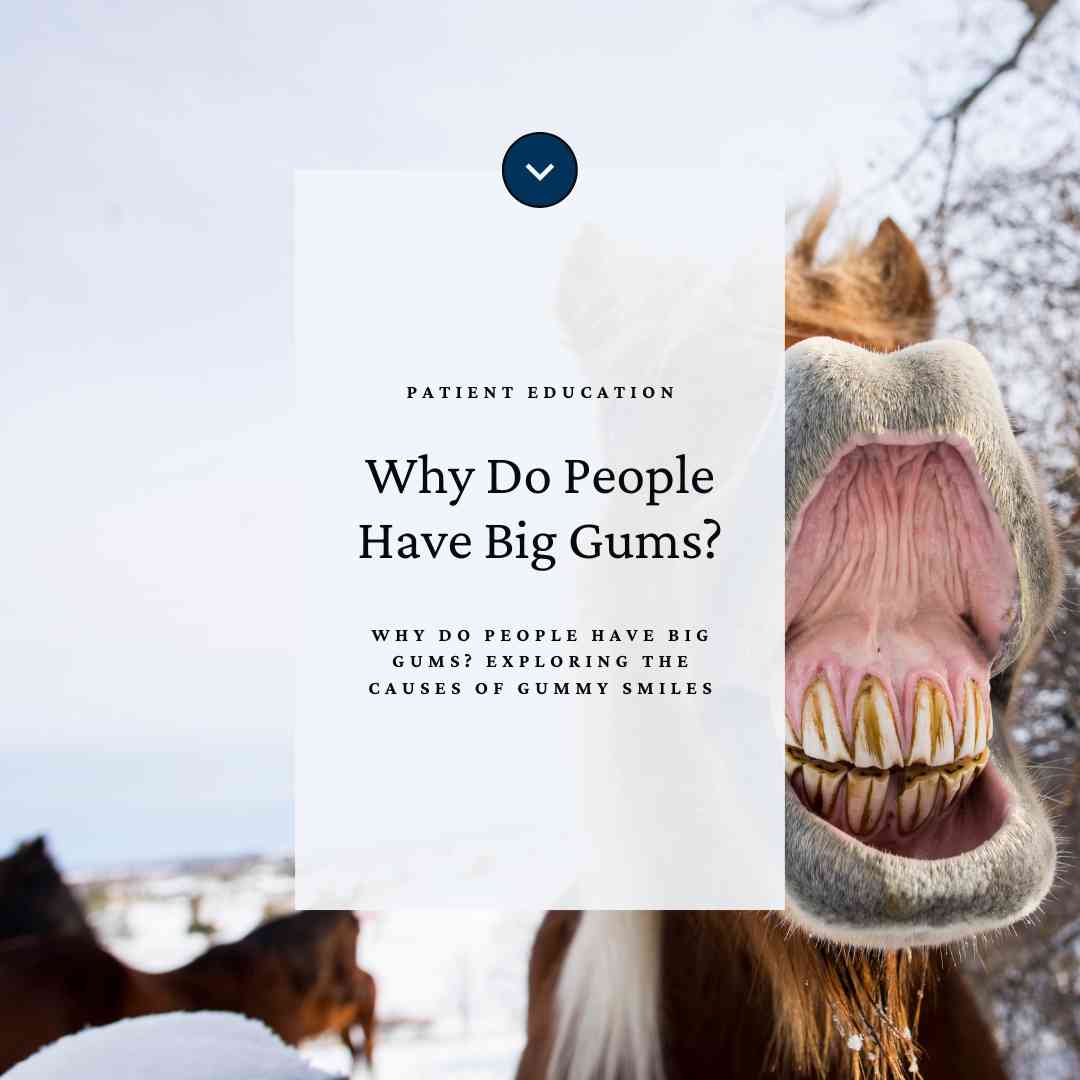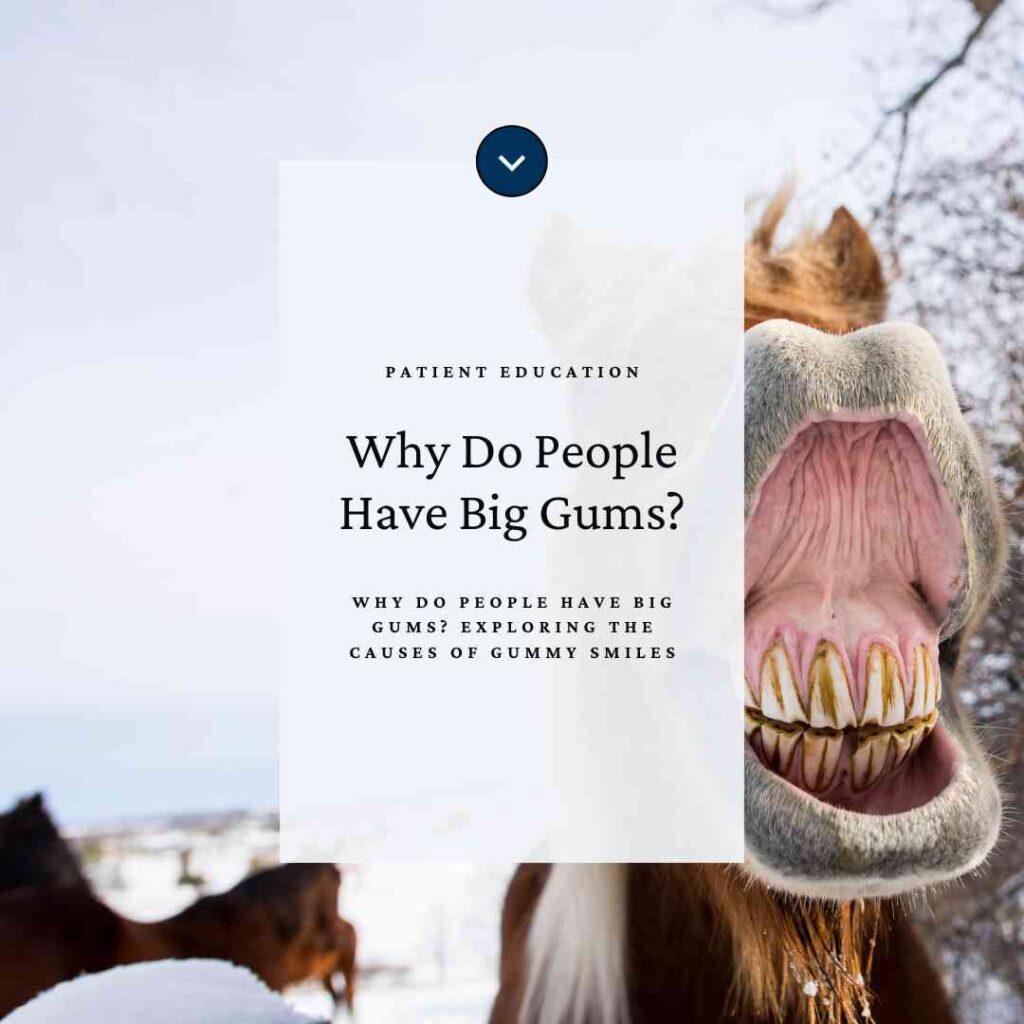Why Do People Have Big Gums? Exploring the Causes of Gummy Smiles


A smile brightens any room, but some people feel less confident about showing too much gum tissue.
Big gums, or what dentists call excessive gingival display, affect many people's confidence. Research shows this condition impacts about 10% of young adults between 20 and 30 years old. Some people naturally have bigger gums that make their teeth appear smaller, while others develop this trait as time passes.
Many patients feel self-conscious about their gummy smile. That's why we need to get into what causes this condition. Several factors play a role – from genetics and jaw development to medications and lifestyle choices. Understanding these causes helps patients make better decisions about their dental health.
Table of Contents
Understanding Gummy Smiles: Medical Causes
Medical professionals have identified excessive gum display as a condition that shows more than 2mm of gum tissue when someone smiles [1]. This common condition can develop from several medical causes that shape how our teeth, gums, and jaw grow.
Here are the main medical reasons behind prominent gums:
- Altered passive eruption of teeth
- Vertical maxillary excess (overgrowth of upper jaw)
- Short or hyperactive upper lip
- Gingival hyperplasia (gum tissue overgrowth)
Patients over 15 years old most commonly experience dentoalveolar extrusion and vertical maxillary excess [2]. People often think genetics plays the biggest role, but studies show only 48% of cases run in families [2].
Our overall health can substantially change how our gums look. Pregnancy hormones, some medications, and health conditions like diabetes can lead to gingival hyperplasia [3]. The way teeth emerge and develop can also affect gum appearance, which sometimes results in gums that look too large compared to teeth.
These medical causes often overlap and need a professional to diagnose them properly [4]. A clear understanding of why it happens helps doctors choose the right treatment plan.
Lifestyle and Environmental Influences
Your environment and daily habits affect your gum health by a lot. Research shows that what you eat plays a vital role in your oral health. Diets high in sugar help oral bacteria grow and lead to gum problems [5]. Changes in temperature and humidity levels can also affect your oral health [6].
Your body's hormone levels change throughout life and this affects your gum health. Women face more oral health problems because of their hormone changes. Studies reveal higher risks during pregnancy, menstruation, and menopause [7]. These hormone changes alter how your body deals with plaque buildup and affect blood flow to your gums [7].
Your gums can become enlarged due to several lifestyle factors:
- Not keeping up with oral hygiene leads to plaque buildup
- Some medications, especially those for epilepsy and heart conditions [8]
- Pollutants in the environment, including microplastics in dental products [5]
- Your stress levels and other lifestyle choices
Good oral hygiene becomes extra important when your hormones change [9]. Regular visits to your dentist and professional cleaning help manage these environmental and lifestyle effects. The link between oral health and environmental factors explains why some people get enlarged gums even with good genes.
Treatment Options and Solutions
People often ask about their gummy smiles, and we have good news – several treatment options work well. The right solution depends on what's causing the issue and what each person needs.
Long-lasting solutions include several proven approaches:
- Crown Lengthening: This removes extra gum tissue to show more of your teeth [4]
- Veneers or Crowns: These work best when teeth appear too short [10]
- Orthodontic Solutions: Braces or Invisalign help fix teeth that don't line up properly [12]
Serious cases might need lip repositioning surgery or orthognathic surgery [4]. These trailblazing solutions last forever but need more recovery time.
Professional cleaning and scaling are a great way to get better results when inflammation causes the problem [11].
Conclusion
A gummy smile can shake your self-confidence. We now know this common condition happens due to medical, genetic, and lifestyle factors. Research shows all but one of these cases have family connections, while others develop through environmental influences and changes in life.
Several factors contribute to this dental characteristic. Medical causes include altered tooth eruption and jaw development. Lifestyle elements like oral hygiene habits and hormonal changes play their part too. Traditional one-size-fits-all approaches often fall short because multiple factors are at work.
Modern dentistry provides many solutions. Each patient's path to their ideal smile is unique. We help our patients select treatments that work best for their specific needs. Want to learn how you can fix a gummy smile? Give us a call at 620-275-9157.
References
[1] – https://renaissancedentalcenter.com/what-causes-a-gummy-smile/
[2] – https://www.ijohd.org/html-article/13669
[3] – https://www.grovedentalclinic.com/understanding-gums-growing-over-teeth-causes-and-solutions/
[4] – https://www.ncbi.nlm.nih.gov/books/NBK470437/
[5] – https://www.mapledentalhealth.com/blog/influence-environmental-factors-oral-health/
[6] – https://www.researchgate.net/publication/327022747_The_influence_of_environmental_factors_on_the_production_of_gum_arabic_Acacia_senegal_-_Fabaceae_-_A_Meta-Analysis
[7] – https://www.uab.edu/news/health/item/13578-how-do-hormonal-changes-impact-my-oral-health-uab-experts-weigh-in
[8] – https://www.ohiocosmeticdentists.com/blog/is-a-gummy-smile-unhealthy/
[9] – https://www.relaxandsmile.com/blog/hormonal-changes-can-cause-receding-gums-cip153/
[10] – https://sturgillorthodontics.com/how-orthodontic-treatment-can-fix-a-gummy-smile/
[11] – https://metropolitanskinclinic.com/blog/how-to-fix-a-gummy-smile-without-surgery/?srsltid=AfmBOopflde-KjfZbO6MirSIzAANwOITYHneKIn4285WAP4CdHkKncV_
[12] – https://www.okudaortho.com/how-to-fix-a-gummy-smile-according-to-an-orthodontist/
[13] – https://metropolitanskinclinic.com/blog/how-to-fix-a-gummy-smile-without-surgery/?srsltid=AfmBOopFHYt1wqpWtToeCzGXMgqv-VrZIboeOAlem1SYt7ZRKTAe44sd
The information available on the Website is for general health information only and is not intended to be a substitute for professional medical advice, diagnosis or treatment. You should not rely exclusively on information provided on the Website for your health needs. All specific medical questions should be presented to your own health care provider and you should seek medical advice regarding and before making any changes related to your health.
If you choose to use the information available on the Website without prior consultation with and consent of your physician, you are agreeing to accept full responsibility for your decisions and agreeing to hold harmless Randall K. McVey, DMD PA, its agents, employees, contractors, and any affiliated companies from any liability with respect to injury or illness to you or your property arising out of or connected with your use of this information.
MedicAL DISCLAIMER
Patient Portal
help
Disclaimers
HIPAA
Accessibility
Privacy Policy & Cookie Policy
Terms & Conditions